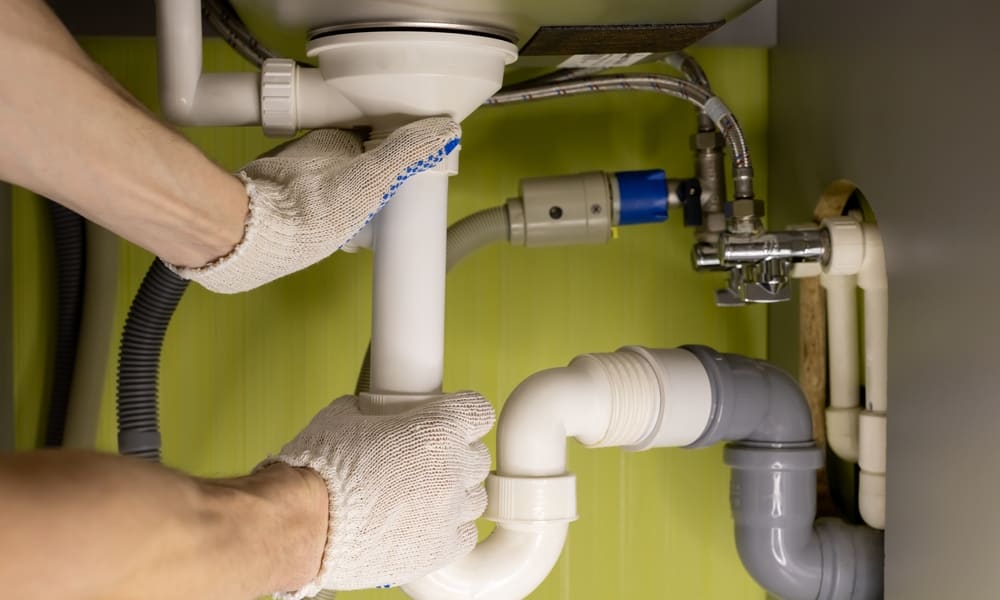Drain Cleaning Tips — And When You Shouldn’t Do It Alone
Keeping your drains and pipes clean is a key part of responsible homeownership, but it’s often neglected until something goes wrong. Whether it’s unpleasant smells from the bathroom or water backing up in the kitchen, these warning signs can turn into expensive problems if ignored. Knowing the causes of clogs, recognizing when your system needs attention, and understanding how to handle issues early can help you avoid major repairs and maintain a healthy plumbing system.

What Are the Warning Signs That Your Drains Need Attention?
Recognizing the early signs of drain problems can save you from costly repairs down the line. Be on the lookout for slow-draining sinks or showers, gurgling noises from drains, and unpleasant odors emanating from your plumbing fixtures. Water backing up in sinks or toilets is a more severe indication that your drains need immediate attention. If you notice multiple drains in your home experiencing issues simultaneously, this could signal a more significant problem in your main sewer line.
What Are the Common Causes of Household Drain Clogs?
Understanding the root causes of drain clogs can help you prevent them in the future. Hair and soap scum are frequent culprits in bathroom drains, while kitchen sinks often fall victim to grease, food particles, and coffee grounds. In toilets, excessive toilet paper or non-flushable items are common clog creators. Outdoor drains can become blocked by leaves, dirt, and debris. Tree roots seeking moisture can also infiltrate and damage underground pipes, leading to severe blockages.
DIY Solutions vs. Professional Services: When to Try and When to Call?
For minor clogs, DIY solutions can be effective. Start with a plunger, which can often dislodge simple blockages in sinks and toilets. A mixture of baking soda and vinegar, followed by hot water, can help clear minor build-ups in drains. For more stubborn clogs, a plumber’s snake or auger can be useful for reaching deeper into the pipes.
However, there are situations where DIY methods fall short, and professional intervention becomes necessary. If you’ve tried multiple home remedies without success, or if you’re dealing with recurring clogs, it’s time to call a professional. Likewise, if you suspect issues with your main sewer line or if multiple drains are affected simultaneously, these are jobs best left to the experts.
What is the Recommended Maintenance Schedule for Drain Cleaning?
Preventative maintenance is key to avoiding major drain issues. As a general rule, perform a basic cleaning of your drains monthly. This can involve using a mixture of baking soda and vinegar, followed by hot water, to keep pipes clear of minor build-up. For kitchen sinks, run hot water for a few minutes once a week to help prevent grease accumulation.
Consider having a professional inspection and cleaning of your main sewer line every 18 to 22 months, especially if you have older pipes or trees near your sewer line. If you live in an area with hard water, more frequent maintenance may be necessary to prevent mineral build-up in your pipes.
What Professional Drain Cleaning Services Are Available and at What Cost?
Professional drain cleaning services range from simple snaking to more advanced hydro jetting. The cost can vary significantly based on the severity of the clog, the type of service required, and your location. Here’s a general overview of common services and their estimated costs:
| Service | Description | Estimated Cost |
|---|---|---|
| Drain Snaking | Uses a long, flexible auger to remove clogs | $100 - $275 |
| Hydro Jetting | High-pressure water cleaning for stubborn clogs | $350 - $600 |
| Video Inspection | Camera inspection to identify deep clogs or pipe damage | $100 - $800 |
| Main Sewer Line Cleaning | Clearing blockages in the main sewer line | $150 - $600 |
| Rooter Service | Removes tree roots from pipes | $100 - $400 |
Prices, rates, or cost estimates mentioned in this article are based on the latest available information but may change over time. Independent research is advised before making financial decisions.
While these costs might seem high compared to DIY solutions, professional services can save you money in the long run by preventing more severe damage to your plumbing system. Additionally, many plumbing companies offer service packages or memberships that can reduce the overall cost of regular maintenance.
Maintaining clean and functional drains is crucial for the health of your home’s plumbing system. While many minor issues can be addressed with simple DIY methods, it’s important to recognize when a problem requires professional attention. By following a regular maintenance schedule and promptly addressing any warning signs, you can keep your drains flowing smoothly and avoid costly repairs. Remember, when in doubt, it’s always better to consult with a professional plumber to ensure the job is done right and to protect your home’s plumbing infrastructure.




